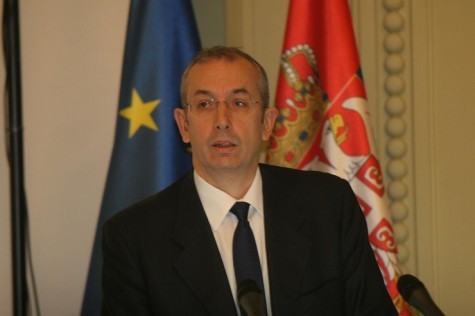Brussels agreement was an important breakthrough within Belgrade-Pristina relations, marking a significant change in approach, said Head of the EU Delegation to Serbia Michael Davenport Tuesday at the NATO Parliamentary Assembly Rose-Roth Seminar, held at the National Assembly of Serbia.
Up until 2012, relations remained technical and there was a need of raising the level of political leadership. Frequency of sessions was crucial in order to reach a turning point, Davenport said.
He reminded that Serbian Foreign Minister Ivica Dacic had travelled to Brussels 50 times and that currently “he is happier to travel to Vienna more often,” according to FoNet news agency.
Reminding about the work done, Davenport said that law enforcement, judiciary and customs integration into Kosovo institutions was successful, as well as the fact that the elections were held.
Normalisation is achieved and we make constant steps toward progress, Davenport said.
Serbia has reached the point of agreement regarding the cooperation and signed a number of agreements, and I believe that a strong message was sent once Ivica Dacic paid NATO a visit, and I think that in many aspects EU and NATO are of help to each other, Davenport said.
He assessed that there Serbia had a strong interest in taking part in international missions and should be proud of its role within UN and EU missions.
Speaking about Serbia’s OSCE Chairmanship, Davenport said Serbia was not even aware of the scope of challenges it had to face, especially regarding Ukraine.
Speaking about Serbia’s position towards the issue of Ukraine, he, although distancing himself by saying that he could not speak about the position of Serbian authorities, said that Belgrade supported Ukraine’s sovereignty and territorial integrity, which was in line with EU Member States’ position.
Serbia, however, is unable to Michael Davenport: Progressive alignment with the EUfully align its foreign and security policy with the one of the EU, in terms of restrictive measures imposed on Russia, Davenport said and stressed that Serbia, being a candidate country, was not obliged to do so in the current stage of EU accession.
It is, however, necessary, to progressively align its foreign and security policy to the European one, he said.
When asked about economic criteria Serbia had to fulfil prior to membership, Davenport assessed that membership criteria concerned all of the Western Balkans countries, but that Serbia was at the forefront and that its reform efforts were commended by IMF.




